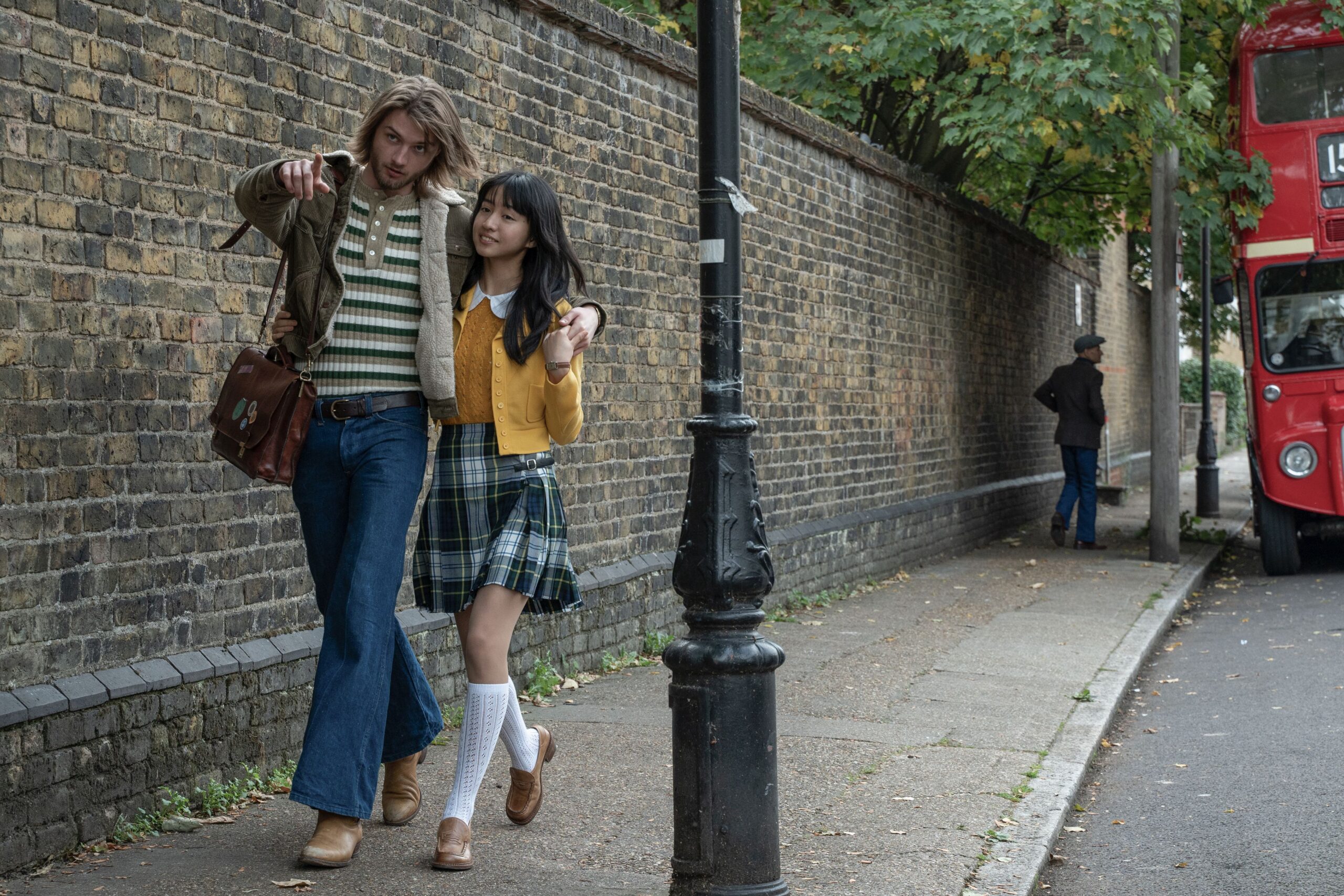The double whammy of a happy surprise! Like Mars Express earlier this year, Touch arrives and dips into waters I did NOT expect. Why? Well, I thought Past Lives had closed the door on decades long romances, and more importantly, the last movie Baltasar Kormakur made was about Idris Elba fighting a lion, so….
Touch jumps between two times in the life of Kristopher. In 1960s London, the younger Icelandic Kris (Palmi Kormakur) has been riled up to support the proletariat despite being in university. To prove his beliefs to his classmates, he takes a dishwashing job at Takahashi-san’s (Masahiro Motoki) Japanese restaurant, learning from him, as well as the rest of the wait staff, including Takahashi’s daughter Miko (Koki). Fast forward to early 2020 back in Iceland, and the aging Japanese chef Kristopher (Egill Olafsson) is excited to revisit those happy days learning in the restaurant. He goes back to his London stomping grounds, when, um, this weird disease called covid started making Kristopher’s trip much more complicated.
Touch has to get the 1960s stuff right or the movie doesn’t work. So for the action CGI man, Baltasar Kormakur has to do a movie 180 and build a sweet, quiet, but interesting romance through character building. Thankfully, he has a novel to use for source material, and luckily, he cast it wonderfully. Palmi Kormakur and Koki make a wonderful pair. Baltasar’s son Palmi is everything Kristopher needs to be: a contemplative, open hearted reactive man eager to learn about a culture that isn’t his own. Koki barely factors in early as young Kristofer is built, meal by Japanese meal. We see him make earnest attempts to immerse into this new world he’s found himself in, careful to not whitesplain anything to his new guides and mentors. So by the time Miko starts making more forward advances towards Kristofer, we know who he is. Then the movie takes us on a whirlwind romance for the ages, as the quiet Miko and Kris slowly open up to one another. The movie is filmed like a beautiful memory, with Baltasar using the “nostalgia filter” to make this Japanese restaurant alive with the hopes and dreams of a young man and the woman he loves, where you swoon again and again and again.
But then you come crashing back to reality in 2020 Februaryish. As we’re building this Miko/Kris romance, we know where it’s going to end up at this date/time. Baltasar does a great job juxtaposing all these wonderful, welcoming touches and feelings the 1960s world brought to Kris, while he deals with these wacky, unfeeling lockdown procedures that keep everyone an arms length away from any real connection. It’s a great trick, coupled with the bold move to change the book adaptation to make this film more of a mystery about what happened to Miko. As survivors of 2020, you can feel the pressure of Kristofer to find Miko before everything shuts down, and he’s stuck, forever an arms length away from the woman he’s loved his entire life. Even a rushed, faithful book ending can’t dull the power of Touch’s story, which thankfully finds a great ending after the rushiness right before.
Why do the great romances have to be so sad? Touch’s teeter-totter emotional journey drives home why some people never get over the love of their life, accepting the sad because the happy was so, so, divine. Like Idris and the lion in Beast. No wonder they were so pissed and had to fight each other to the death: they were heart broken!

